Democracy and
Relativism
Reinventing Critical Theory
Series Editors:
Gabriel Rockhill, Associate Professor of Philosophy, Villanova University; Yannik Thiem, Associate Professor of Philosophy, Villanova University; Jennifer Ponce de Len, Assistant Professor of English, University of Pennsylvania
The Reinventing Critical Theory series publishes cutting edge work that seeks to reinvent critical social theory for the 21st century. It serves as a platform for new research in critical philosophy that examines the political, social, historical, anthropological, psychological, technological, religious, aesthetic and/or economic dynamics shaping the contemporary situation. Books in the series provide alternative accounts and points of view regarding the development of critical social theory, put critical theory in dialogue with other intellectual traditions around the world and/or advance new, radical forms of pluralist critical theory that contest the current hegemonic order.
Titles in the Series
Commercium: Critical Theory from a Cosmopolitan Point of View , Brian Milstein
Resistance and Decolonization , Amlcar Cabral - Translated by Dan Wood
Critical Theories of Crisis in Europe: From Weimar to the Euro , Edited by Poul F. Kjaer and Niklas Olsen
Politics of Divination: Neoliberal Endgame and the Religion of Contingency , Joshua Ramey
Comparative Metaphysics: Ontology After Anthropology , Pierre Charbonnier, Gildas Salmon and Peter Skafish
The Invention of the Visible: The Image in Light of the Arts , Patrick Vauday - Translated by Jared Bly
Metaphors of Invention and Dissension , Rajeshwari S. Vallury
Technology, Modernity and Democracy , Edited by Eduardo Beira and Andrew Feenberg
A Critique of Sovereignty , Daniel Loick - Translated by Amanda DeMarco
Democracy and Relativism: A Debate , Cornelius Castoriadis - Translated by John V. Garner
Democracy and
Relativism
A Debate
Cornelius Castoriadis
Translated by John V. Garner
London New York
Published by Rowman & Littlefield International, Ltd.
6 Tinworth Street, London SE11 5AL
www.rowmaninternational.com
Rowman & Littlefield International, Ltd. is an affiliate of
Rowman & Littlefield
4501 Forbes Boulevard, Suite 200, Lanham, Maryland 20706, USA
With additional offices in Boulder, New York, Toronto (Canada), and London (UK)
www.rowman.com
Copyright 2020 by Rowman & Littlefield International
All rights reserved. No part of this book may be reproduced in any form or by any electronic or mechanical means, including information storage and retrieval systems, without written permission from the publisher, except by a reviewer who may quote passages in a review.
British Library Cataloguing in Publication Information
A catalogue record for this book is available from the British Library
ISBN: HB 978-1-78661-094-2
ISBN: PB 978-1-78661-095-9
ISBN: Electronic 978-1-78661-096-6
Library of Congress Cataloging-in-Publication Data
Names: Cornelius Castoriadis
Title: Democracy and Relativism: A Debate

TM The paper used in this publication meets the minimum requirements of American National Standard for Information Sciences Permanence of Paper for Printed Library Materials, ANSI/NISO Z39.48-1992.
Foreword
John V. Garner
The desire and the capacity of citizens to participate in political activities are themselves a political problem and a political task.
Cornelius Castoriadis
This book translates the December 1994 meeting between philosopher Cornelius Castoriadis (19221997) and the contingent of Francophone intellectuals known as MAUSS (extant 1981 present).
The importance of this encounter for us will quickly become evident to the reader. Its relevance stems not only from the English-speaking worlds increasing interest in the work of Castoriadis but also, and above all, from this dialogues absolutely timely content. Here, I will link the dialogues themes to three contemporary concerns before commenting, in closing, about matters of context and translation.
Relativism and Democracy Today
At least three prevalent themes in the Castoriadis- MAUSS debate have important contemporary resonances. First, the debate contributes to discussions about the post-truth era through its exploration of the practical consequences of relativism. Second, it speaks to the need to reflect on our institutional-level commitments (e.g. to public spaces, to education, and so on) and on whether and how they enable genuine political engagement and dialogue. Third, it explores important examples of past political engagement, especially the example of Greek democracy, in a way that contextualizes our own era. Emphasis should be placed, in each case, on how the interlocutors model both a respectful form of dialogue and a non-authoritarian approach to intellectual questions.
First, in an age miserably saddled with the epithet post-truth era, the dialogues opening topic of relativism is timely. We can witness today a multitude of practical consequences relating to the notion that one selects at will ones own facts (e.g. contagions of deceptive memes, widespread distrust in the sciences, the return of collectively eradicated diseases, and so on). Castoriadis certainly recognizes what many relativists do, namely the uniqueness of each person and culture, the dangers in applying local norms transculturally, and the need to avoid trusting blindly in authority or taking ones own cultural norms to be necessary and inalterable.
For Castoriadis, one must begin by recognizing the historical fragility not only of autonomy and democracy but also of the very possibility of relativizing ones own understanding, perhaps defined as comparing oneself and ones culture with others in such a way that one sees those other practices as possible and as possibly better in significant ways. This task of making the familiar strange, or of breaking the closure of traditional thought (as Castoriadis calls it), is an important part, among many others, of the project of autonomy. Yet relativizing in this sense is not the same thing as a relativism that would pretend all cultures are equally preferable. Such a relativism relies for its possibility on the historically contingent possibility-to-relativize in general. Now, when one relativizes in general, one performs, or practically activates, a preference for the possibility-to-relativize, an option not presently available to all. In doing so, one of course fails to activate many other cultural possibilities and also excludes those practices that presently oppose it. Yet, unlike the mere relativizer, the relativist goes further. Since relativisms possibility depends on the possibility-to-relativize generally, whenever the relativist claims that no culture is especially preferable, he or she in fact enacts a special preference for the historical possibility-to-relativize while ignoring or denying that preference at the same time.
Hence, Castoriadis might be said to relativize relativism. But this move must be understood not as a dismissal of it but rather as a kind of protection of its underlying possibility. If relativism treats its own historical possibility as an exception to its rule of equal preferability, then Castoriadis instead promotes a universal inception of the broader possibility-to-relativize. That is, he affirms it as one distinct historical possibility, situates it among other possibilities (many of which are presently opposed to it), and defends its activation as one among many preferable parts of the larger project of autonomy that it helps enable. And by affirming that all should be enabled to potentially practice it, Castoriadis thereby commits himself to promoting it to others as an option and fighting against those cultural practices that would presently try to destroy it.


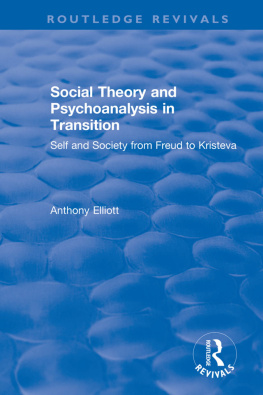
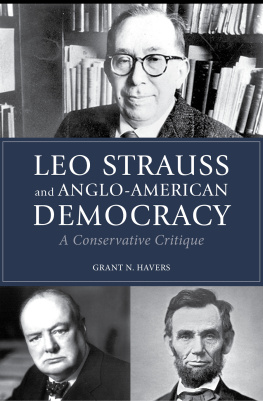
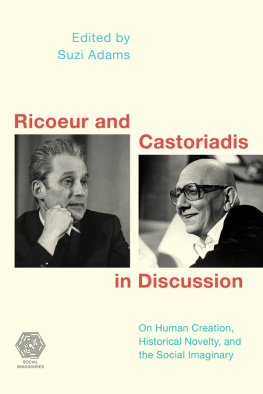
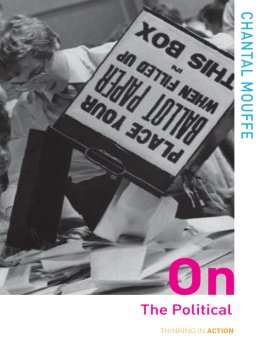
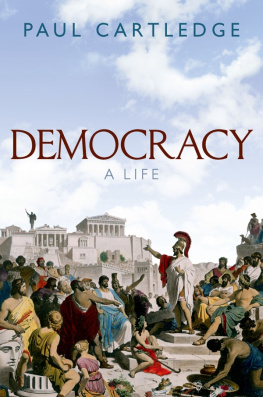
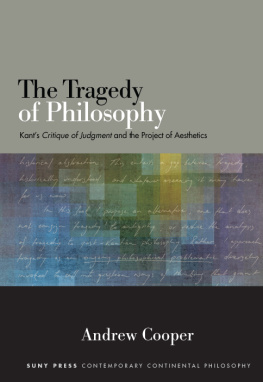
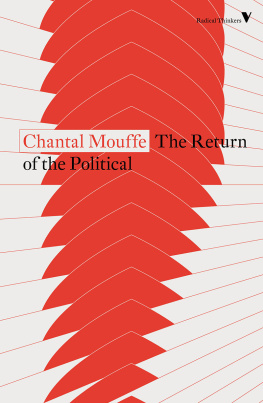
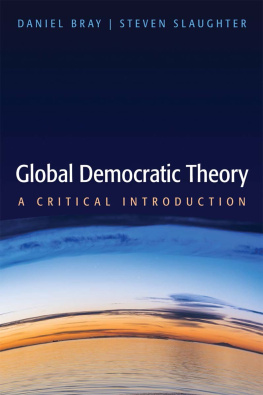
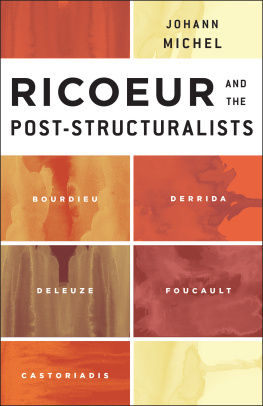
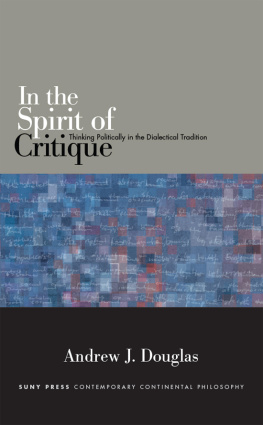

 TM The paper used in this publication meets the minimum requirements of American National Standard for Information Sciences Permanence of Paper for Printed Library Materials, ANSI/NISO Z39.48-1992.
TM The paper used in this publication meets the minimum requirements of American National Standard for Information Sciences Permanence of Paper for Printed Library Materials, ANSI/NISO Z39.48-1992.